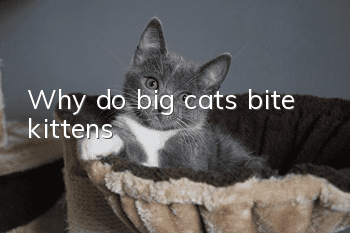What are the symptoms of constipation in cats?

Owners often ignore cats’ constipation. Firstly, it is because cat constipation takes longer than normal for feces to pass through the large intestine, resulting in hardened feces and reduced frequency and volume of defecation, while the form does not change much, so owners tend to ignore this phenomenon; secondly, If the cat is not completely unable to poop, it will be difficult for the owner to notice that there is anything wrong with the cat. Pet doctors will divide cat constipation into three stages: ordinary constipation, stubborn constipation, and megacolon. Development to the megacolon stage will endanger the cat's life and requires surgery. In a multi-cat household, it is more difficult to find out which cat has a physical problem, so owners need to know more about it.
Symptoms that cause constipation in cats
If you observe carefully, there are actually many symptoms of constipation in cats, including: squatting for a long time, abdominal tension, dry and messy hair, vomiting, weight loss, increased abdominal girth, etc. Some cats will only excrete a little watery feces after vigorous defecation. This is because the feces in the intestines have become dry and hardened and cannot be softened and excreted.
The main symptoms of constipation in cats are as follows:
1⃣️When cats are constipated, they will go to and from the cat toilet many times without coming out. At this time, owners often misunderstand that there is a problem with the cat’s urinary system. It must be distinguished.
2⃣️The cat defecates in the toilet for a long time, seems very laborious, looks painful, and howls loudly.
3⃣️After constipation continues for many days, cats will become nervous, lose weight, have a loss of appetite, have messy hair, and may even vomit. The difference between this kind of vomiting and hairball vomiting is that it is also accompanied by abdominal tension and arched back.
4⃣️When a cat’s abdominal circumference increases and an obvious hard lump can be felt in the lower abdomen, it means that the cat’s constipation is very serious. Diseases such as pregnancy, ascites, abdominal foreign bodies or tumors need to be ruled out. But no matter what the reason is, if the above situation occurs, you must go to the pet hospital for treatment.
Causes of constipation
There are many causes of constipation in cats, including the following:
1⃣️Obese and elderly cats are prone to constipation due to slow intestinal peristalsis.
2⃣️Low drinking water and a low-fiber and high-protein diet are not conducive to fecal discharge.
3⃣️A new environment and the owner not cleaning the litter box for a long time will also make cats reluctant to go to the toilet, leading to constipation.
4⃣️Fighting between cats may cause injuries near the anus. The pain may make the cat reluctant to defecate, and may lead to constipation over time.
5⃣️Suffering from renal failure, hypokalemia or abnormal liver functionCats with diseases such as endocrine disorders, nervous system abnormalities, parasite infections, etc. often suffer from constipation.
6⃣️The use of certain drugs will reduce the cat’s digestive juices or slow digestion into smooth muscles, causing constipation in cats.
7⃣️Suffering from certain mental illnesses such as depression can also lead to constipation due to listlessness, reduced food intake, and reduced activity in cats.
How to prevent constipation
Preventing cat constipation is far more important than treating it, as the cat will suffer less. At the same time, if your cat is found to be constipated, do not abuse Kaiselu. Because the magnesium ions in kaiselu may worsen the condition of the cat or even cause death. Therefore, prevention is the priority, mainly focusing on the following points:
1⃣️Add more crude fiber into the cat’s diet, such as replacing prescription cat food or providing cat grass. Hair-reducing cream can also be fed.
2⃣️Increase the cat’s drinking water, let the cat eat canned cat food or feed it homemade cat food, such as steamed fish without feed.
3⃣️Increase the cat’s amount of exercise and play with the cat more.
4⃣️Clean the litter box in a timely manner and do not change the position of the litter box at will.
5⃣️Brush your cat more often to reduce the probability of the hair being swallowed.
6⃣️Appropriate massaging of cats can promote intestinal peristalsis and help defecation.
Usually, keep some probiotics for cats at home to regulate the cat’s gastrointestinal motility and promote gastrointestinal motility. It is very helpful for constipation, loss of appetite, diarrhea, etc.
Conclusion
Cat constipation can be effectively prevented. If you find that your cat at home has the symptoms of constipation mentioned above, you must treat the cat and find out as soon as possible, whether it is cleaning the litter box or taking probiotics. Be careful and if the situation is serious, send it to the pet hospital for prompt treatment.
- How to toilet train a one-month-old kitten? Tips for potty training kittens
- How to solve the problem of cats not burying feces?
- Can cat grass be eaten every day?
- Cat has a lump in its belly
- How can I keep the cat from coming to the bed?
- Do cats eat less in summer? Why is the cat not eating enough?
- Why does the cat follow you?
- How to freeze-dry cats? Frequently asked questions about cat freeze-drying
- Why does the cat keep licking itself?
- Can cats be allergic? Let’s talk about cats’ insect allergies!



